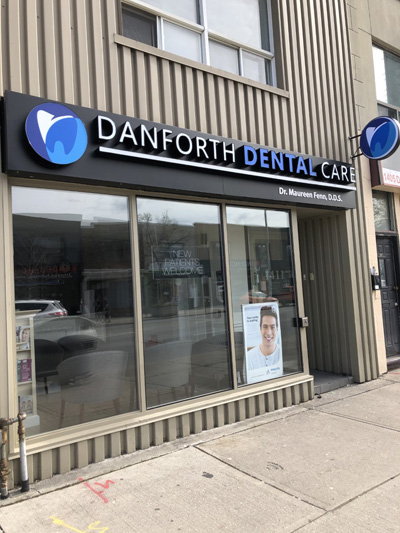Should I be Sleeping with a Sleep Apnea Oral Appliance?
Our Danforth dentist is here to help.
Sleep apnea is a common sleep disorder in which a person’s breathing is affected, repeatedly stopping and starting during the course of their sleep.
There are three main types of sleep apnea: the most common being obstructive sleep apnea, which involves the relaxing of the throat muscles; central sleep apnea, where the brain fails to deliver the right signals to the muscles; and lastly, complex sleep apnea, which combines both obstructive sleep apnea and central sleep apnea.
Once a person has been diagnosed with sleep apnea by a medical professional, finding a suitable treatment such as a sleep apnea oral appliance is the next best step.
About sleep apnea oral appliances
Sleep apnea oral appliances can help to improve a person’s quality of sleep while also reducing daytime fatigue.
An alternative to the CPAP (continuous positive airway pressure) machine, oral appliances are often suitable in many situations to successfully treat obstructive sleep apnea.
The way in which they work is by pushing the tongue and the jaw forward, resulting in creating a larger, more opened airway to improve the airflow. This new position of the tongue and jaw also helps to reduce the risk of the tissue collapsing and narrowing the airway during breathing.
The sleep apnea oral breathing device is often suitable for patients who:
- Suffer from mild to moderate (not severe) sleep apnea.
- Underwent failed surgery for their breathing condition.
- Are opposed to treatment with the CPAP machine.
Are you concerned you might have sleep apnea?
If you are a loud snorer and tend to feel sleepy even after getting adequate rest, you might be suffering from sleep apnea.
Other symptoms of sleep apnea include breathing that ceases during sleep (your sleeping partner or another person would need to tell you about this as you won’t be aware), in addition to gasping for air amidst sleep, awaking with a dry mouth and/or a headache, issues staying asleep (insomnia), as well as problems staying awake during the day/ excessive sleepiness (hypersomnia).
Sleep apnea can affect anyone of any age - but there are a number of risk factors that may increase a person’s risk.
Risk factors for obstructive sleep apnea include being overweight, having a larger neck circumference and/or a more narrow throat/airway, having a family history of sleep apnea, having nasal congestion, being male, being older, regular regularly using alcohol and/or other substances like sedatives or tranquilizers, and/or regular smoking.
For central sleep apnea, risk factors include being male, being older, having a congestive heart disorder, regularly using opioids, and having a history of stroke
Our Danforth dentist is experienced in fitting sleep apnea oral appliances!
It’s important to speak to a medical professional if you experience any of the above symptoms. A sleep apnea oral appliance from our Dr. Maureen Fenn might be just what you need to get your nights (and your days) back on track.
Contact us for inquiries about sleep apnea appliances.


We are conveniently located near Greektown on the TTC Danforth Avenue subway line between Greenwood Avenue and Coxwell Avenue.
1411 Danforth Avenue, Toronto, ON M4J 1N2